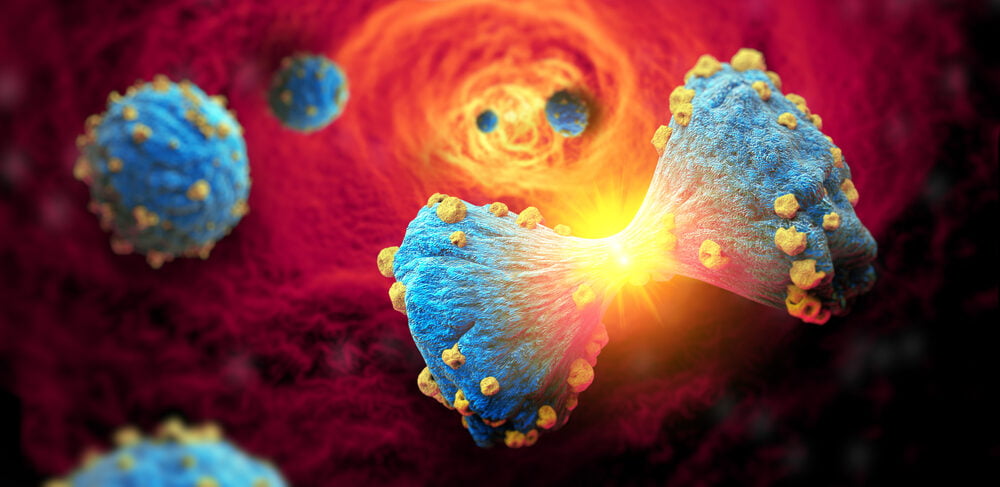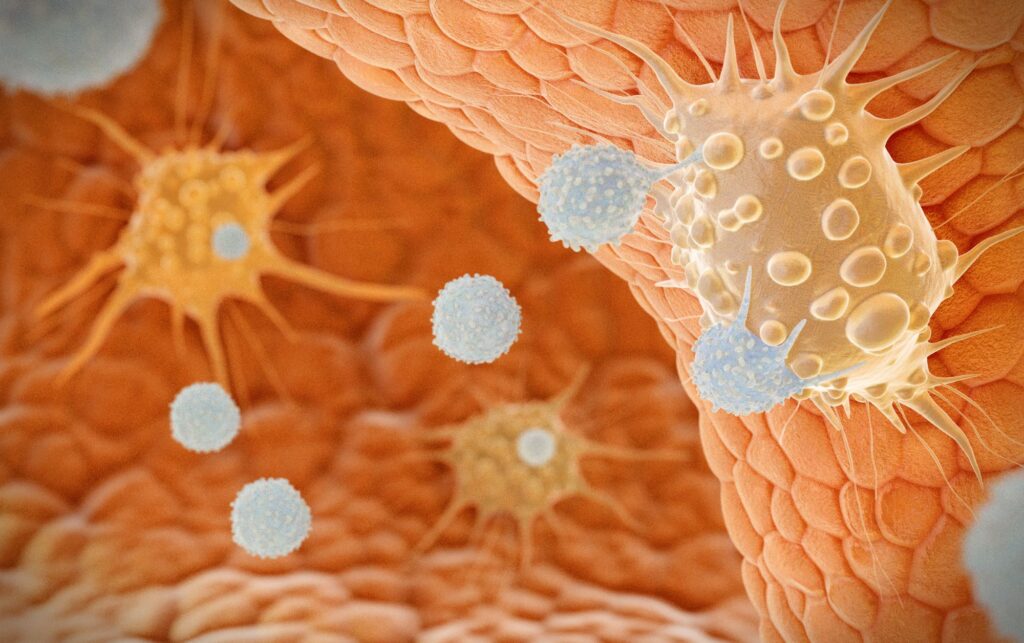Immune system cells that play a crucial role in a patient’s fight against cancer can develop wrongly or become exhausted from their battle with tumors, losing their effectiveness and making a patient’s road to recovery more challenging.
But now a new study has found a way to combat both of these phenomena and restore these important cells to their optimal state.
There are two forms of white blood cells (lymphocytes) in the immune system that attack and destroy cancerous cells, known as T (thymus) cells and NK (natural killer) cells. Some NK cells can be removed, genetically modified to make them more aggressive against cancer cells, and returned to the body to continue the fight.
But both T cells and NK cells can experience dysfunction, struggling to overcome the cancer cells in the body.

Scientists at Bar-Ilan University in Ramat Gan have identified the root of this loss of performance in NK cells and developed a way to bring them back to full effectiveness – with help from nanoparticles.
Prof. Mira Barda-Saad and her team at Bar-Ilan’s Goodman Faculty of Life Sciences determined for the first time that the poor performance by NK cells can have two causes.
The first occurs if the “training” to fight cancer that developing NK cells undergo in the immune system is in some way disrupted, leading them to function incorrectly. This lack of a proper immune system response to cancerous cells or other foreign matter is known as anergy.
The second cause is NK cells becoming exhausted by the constant stimulation they experience when they encounter a tumor in the body and begin to fight it.
In the lab, Barda-Saad’s team found that both anergic and exhausted NK cells have a similar level of dysfunction when it comes to fighting cancer and identified two common factors: an enzyme called DGK alpha and a protein called EGR2.
Such research into this phenomenon in NK cells has never been carried out before.
Sign up for our free weekly newsletter
Subscribe“While significant progress has been made in understanding the molecular mechanisms of T cell dysfunction, the equivalent pathways remain relatively unexplored for NK cells,” the team wrote in an article about their work published recently in the EMBO Journal, an internationally respected publication focusing on molecular biology.
Incidentally, the fatigue in the fight against cancer has been seen in T cells and both kinds of NK cells, and the researchers found similarities between anergic and exhausted NK cells and poorly performing T cells.

To revitalize the NK cells, the researchers focused on a nanoparticle delivery system to “silence” the enzyme and the protein that were having a negative impact on their performance. And when the two were muted, the researchers found that the NK cells could efficiently do their job of killing cancer cells without having to be removed from the body for treatment.
“Our data suggest that ‘anergy’ and ‘exhaustion’ are not simply intrinsic non-responsive states,” the scientists wrote in the article, “but that these newly identified targets can potentially enable these dysfunctional NK cells to be reprogrammed in their native environment.”
Targeting the EGR2 protein in particular, they said, allowed exhausted NK cells “to effectively control tumor growth.”
Similarly, they found that targeting the DGK enzyme had a profoundly positive impact on anergic NK cells, “restoring [them] to levels similar to the responsive ones.”
As such, the scientists wrote, their studies involving both modeling and animals suggest that a nanoparticle-based delivery platform could “reprogram” the dysfunctional natural killer cells in their natural environment.
And according to the team, the research could help in the development of highly effective immunotherapeutic treatments, whereby the immune system is encouraged to attack and kill cancer cells.
“The modulation of NK cell responsiveness represents a promising approach in cancer therapy due to their innate ability to target cancer cells,” they said.
Related posts

Israeli Medical Technologies That Could Change The World

Harnessing Our Own Bodies For Side Effect-Free Weight Loss

Missing Protein Could Unlock Treatment For Aggressive Lung Cancer




Facebook comments